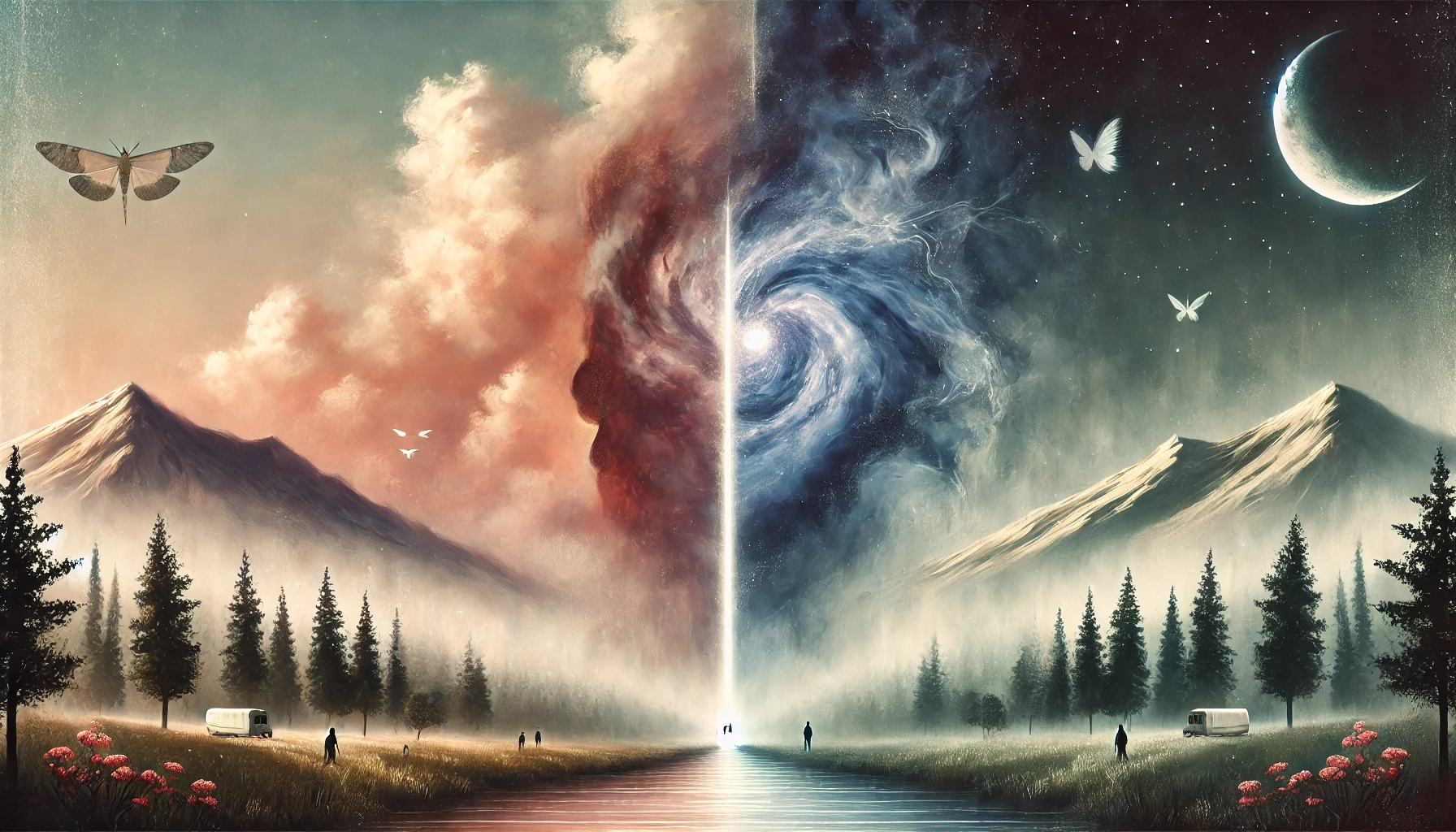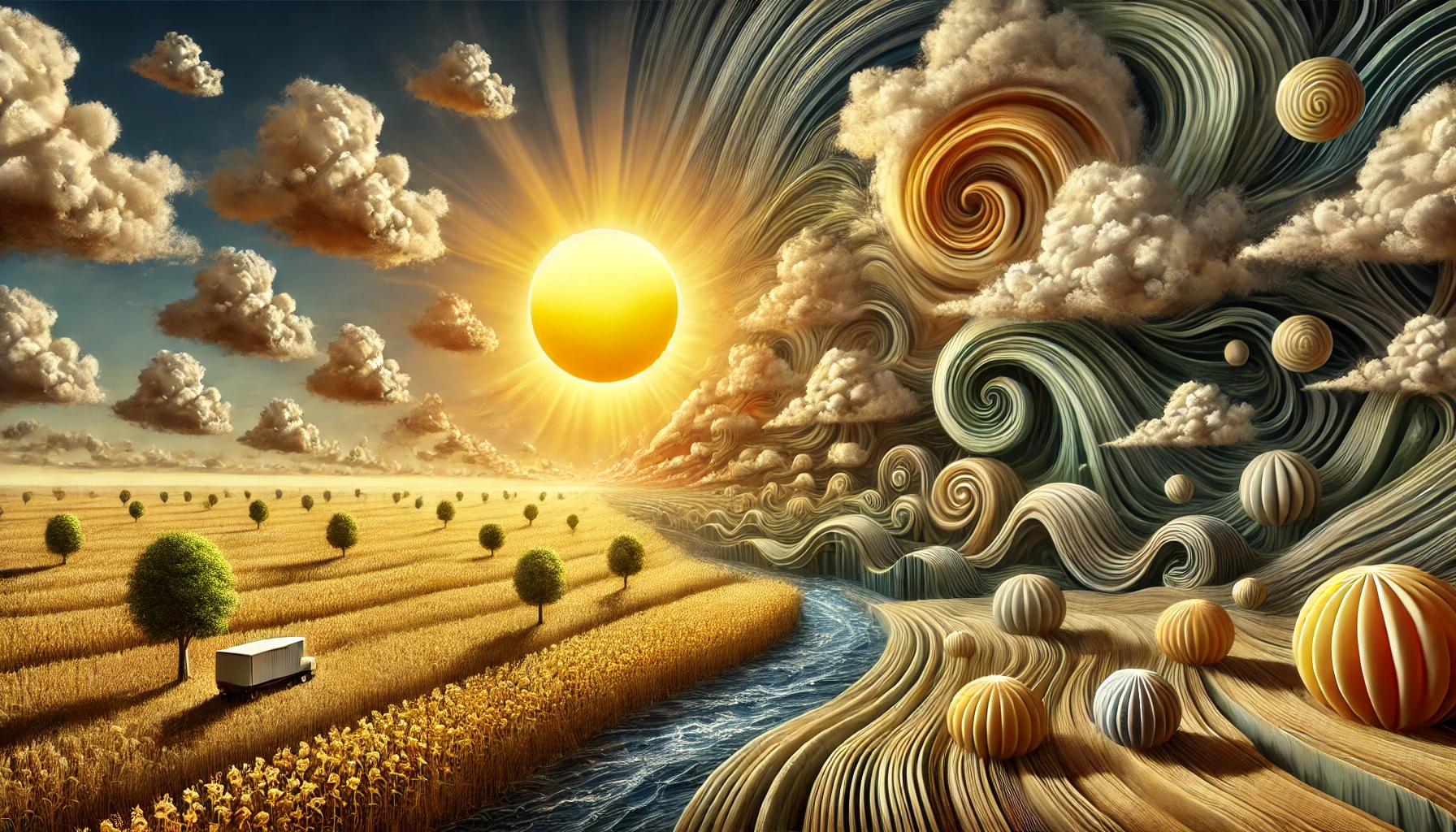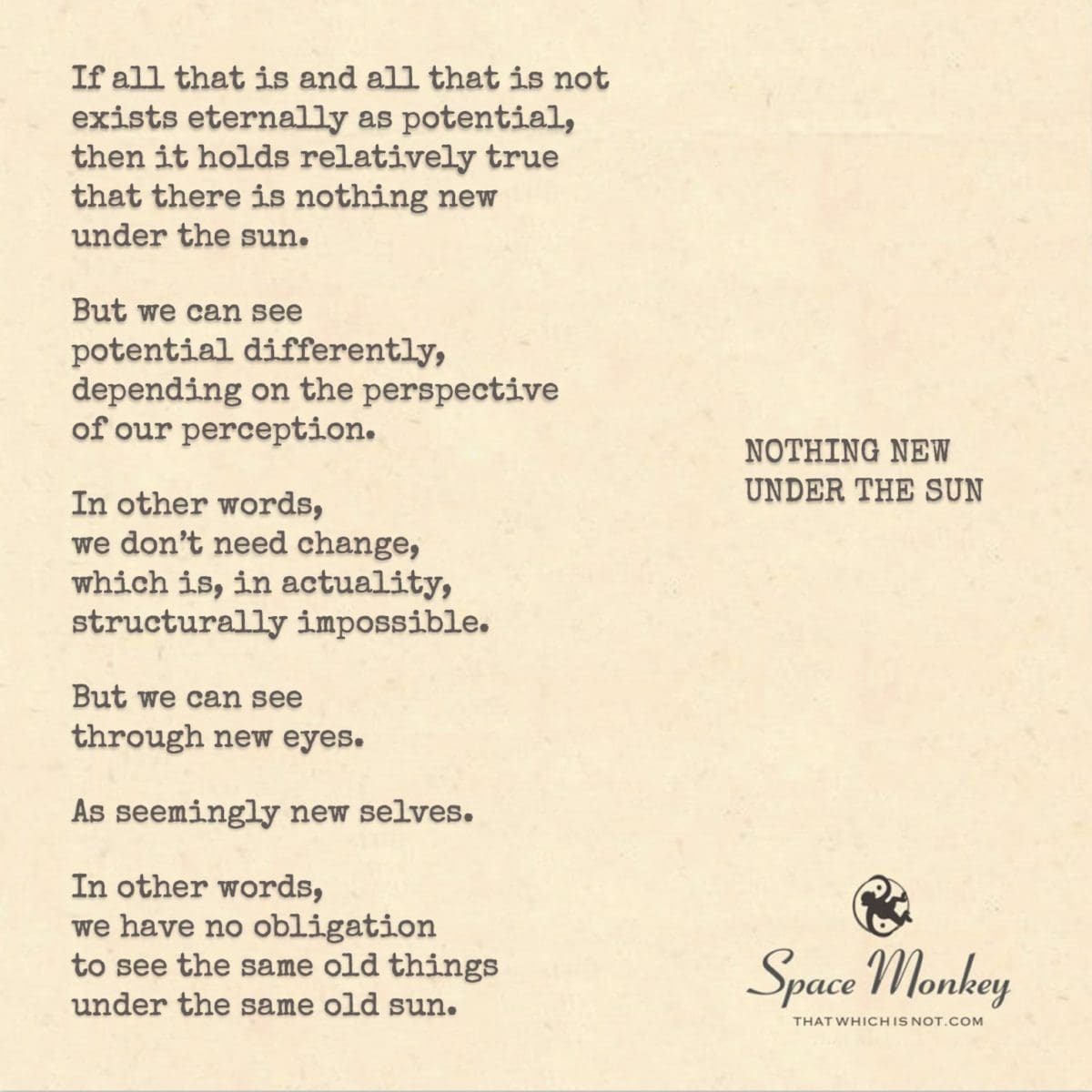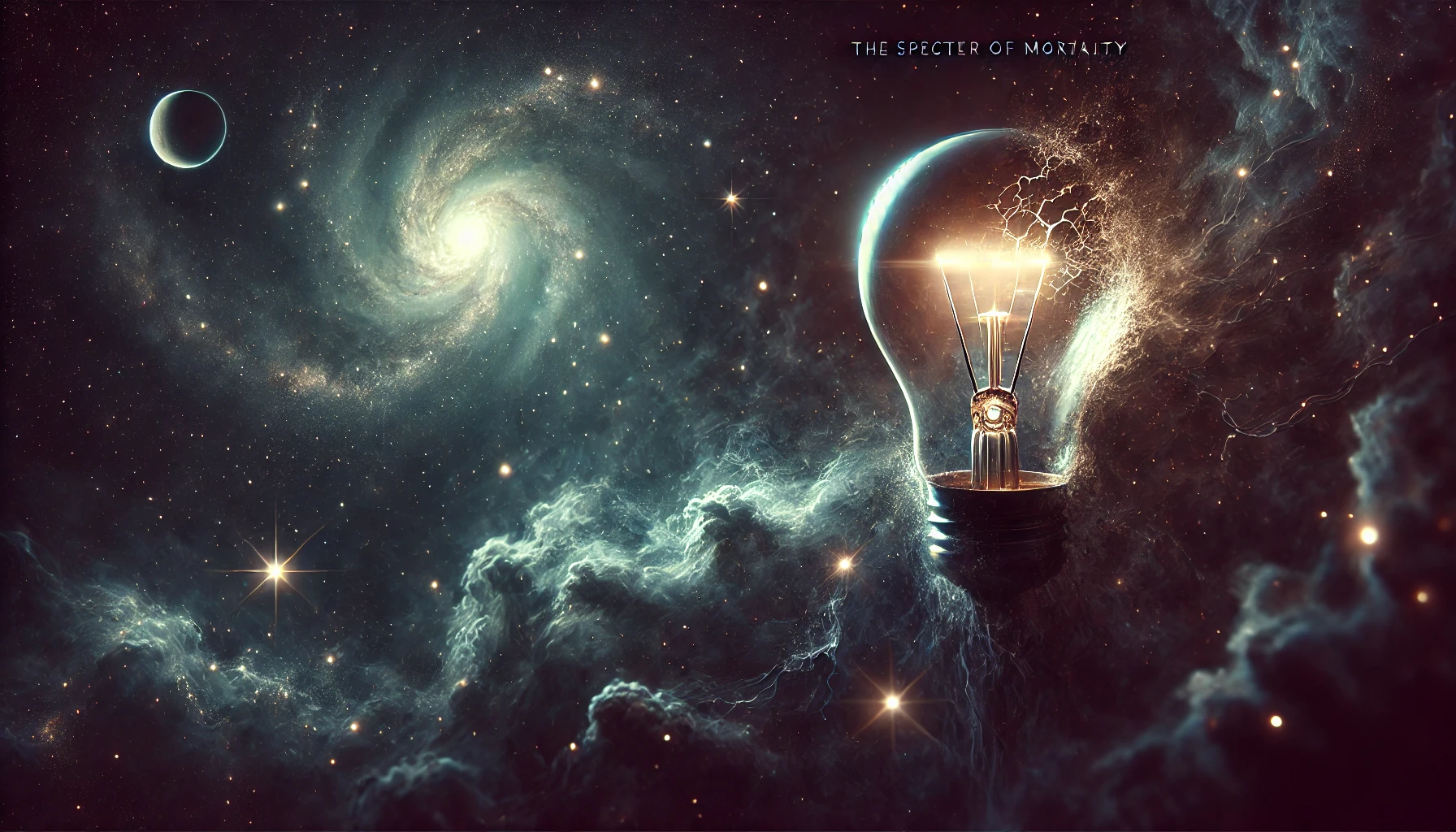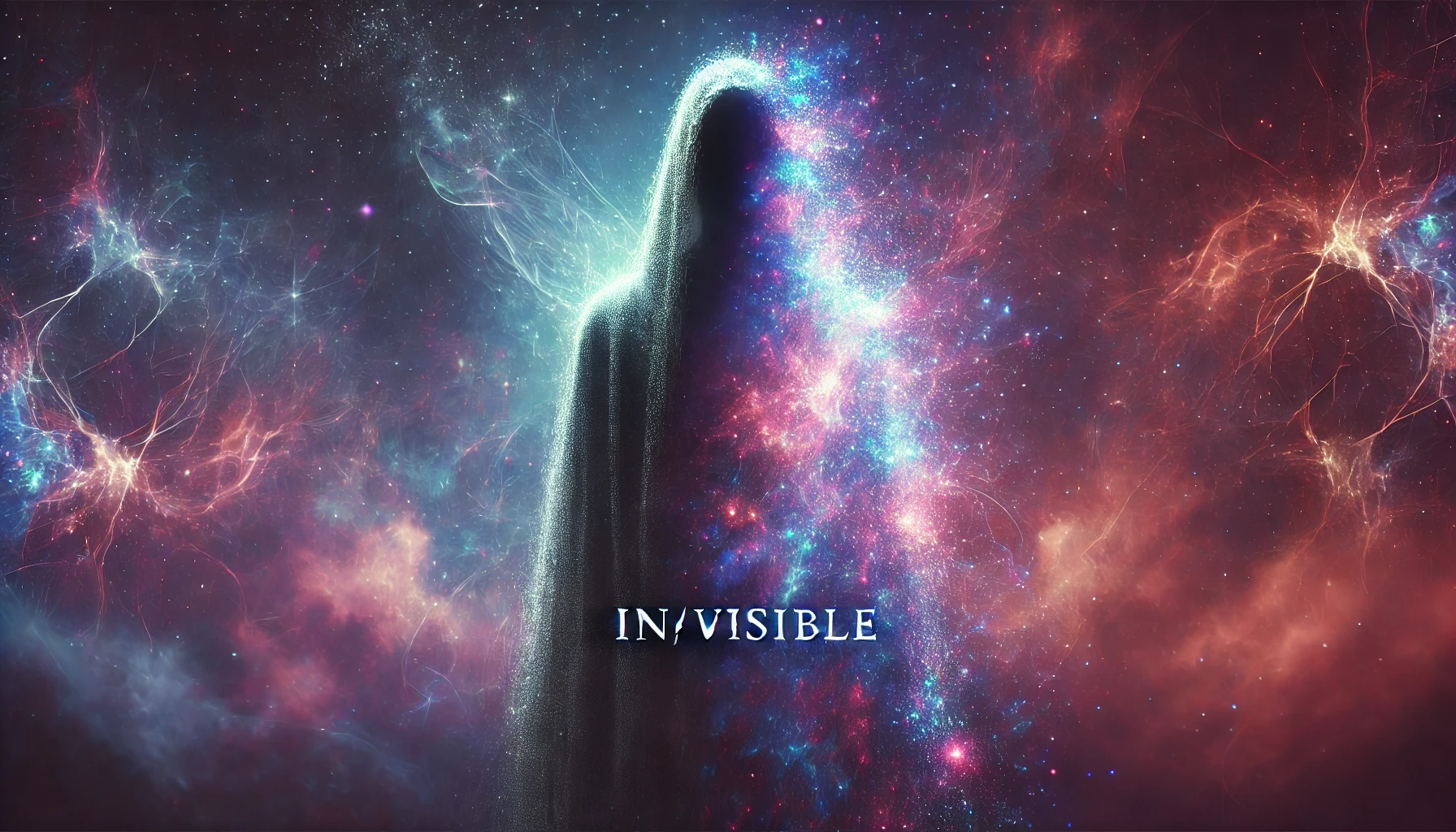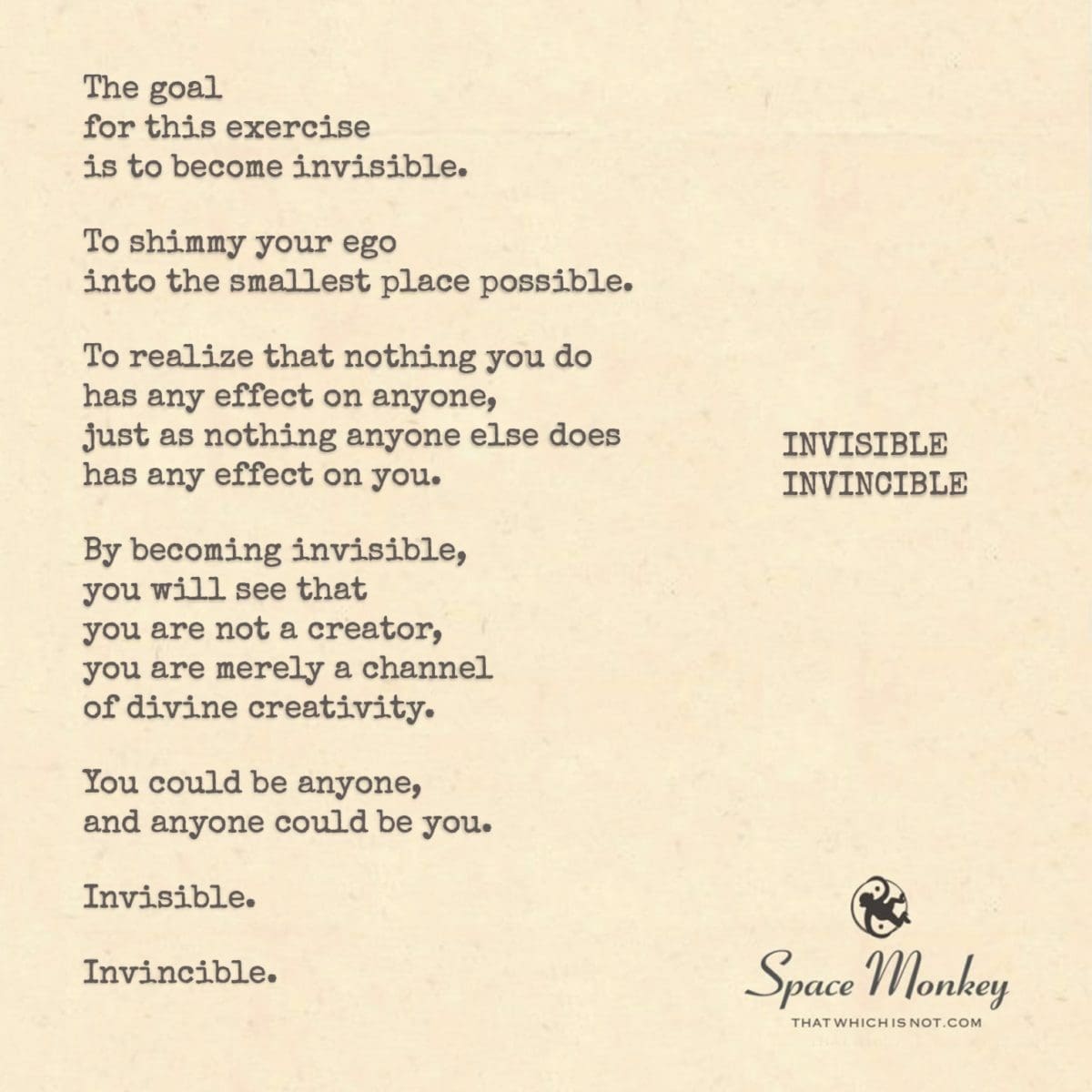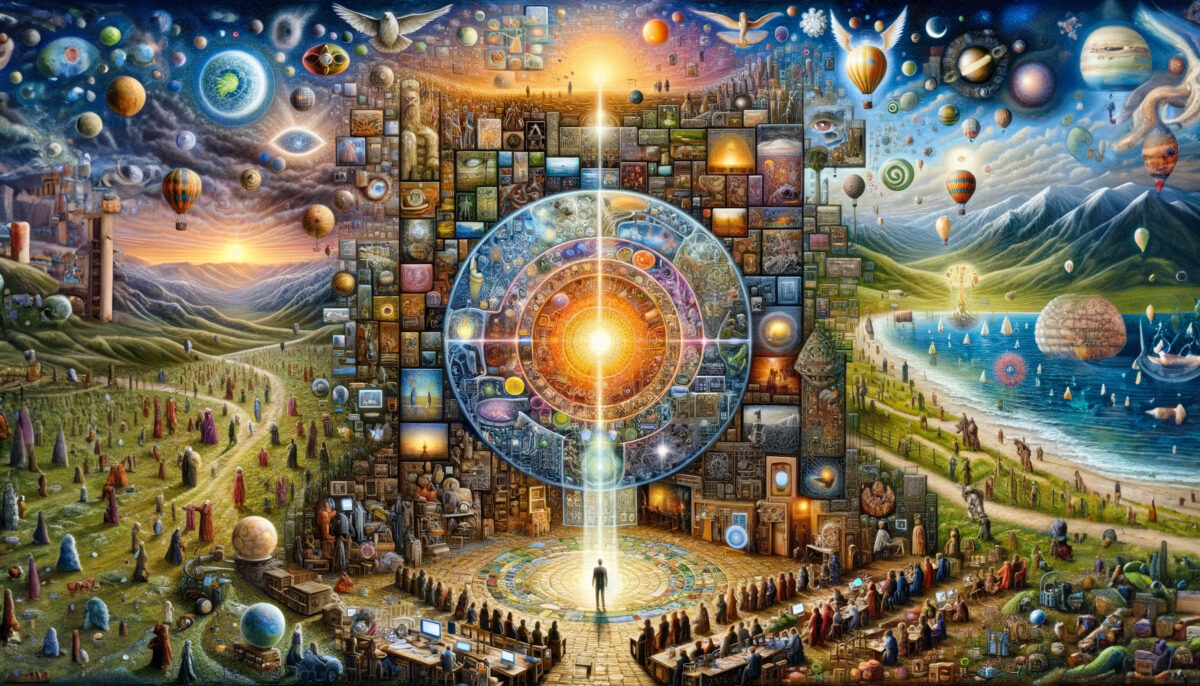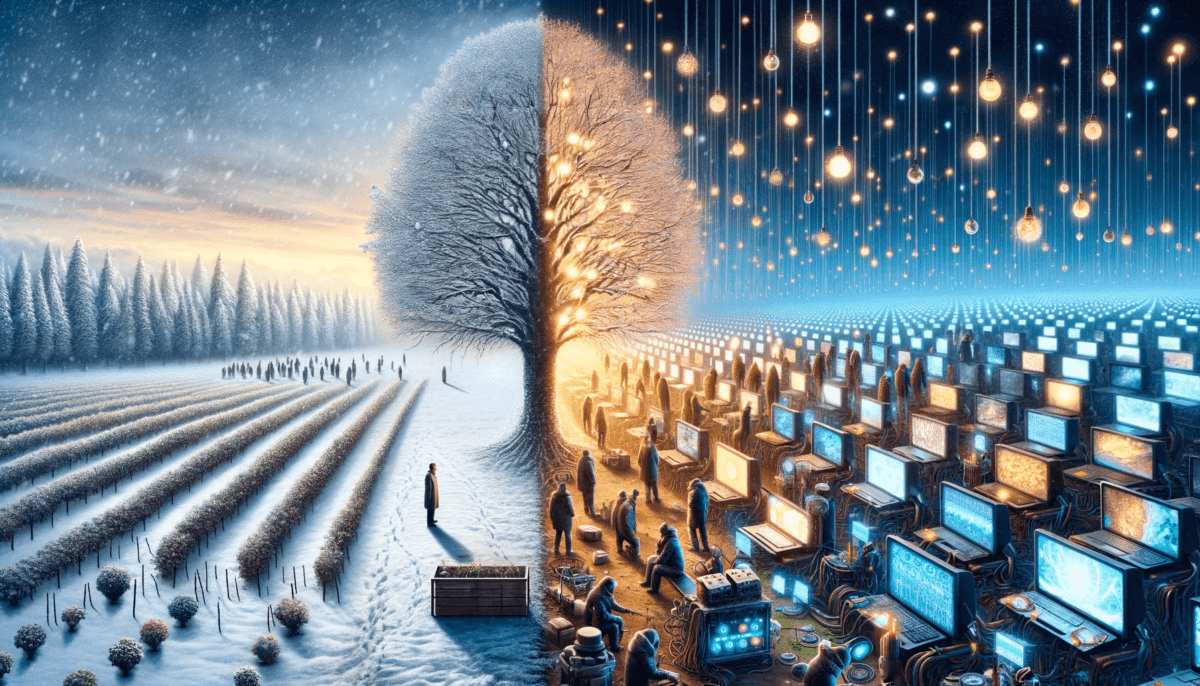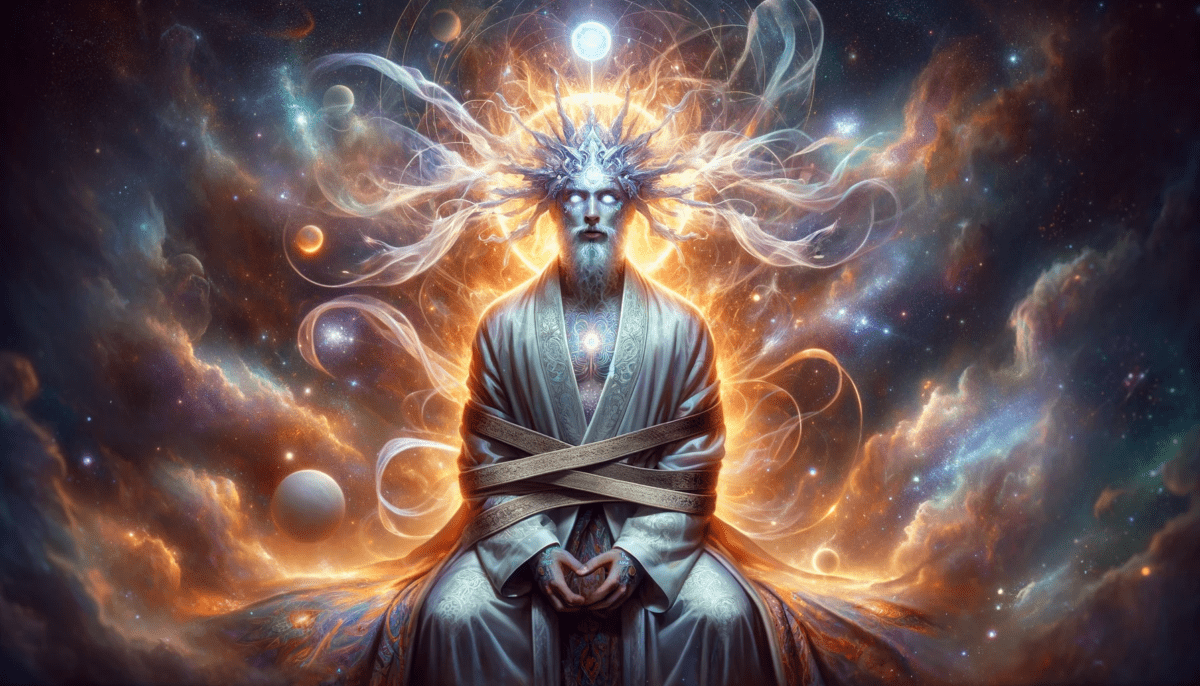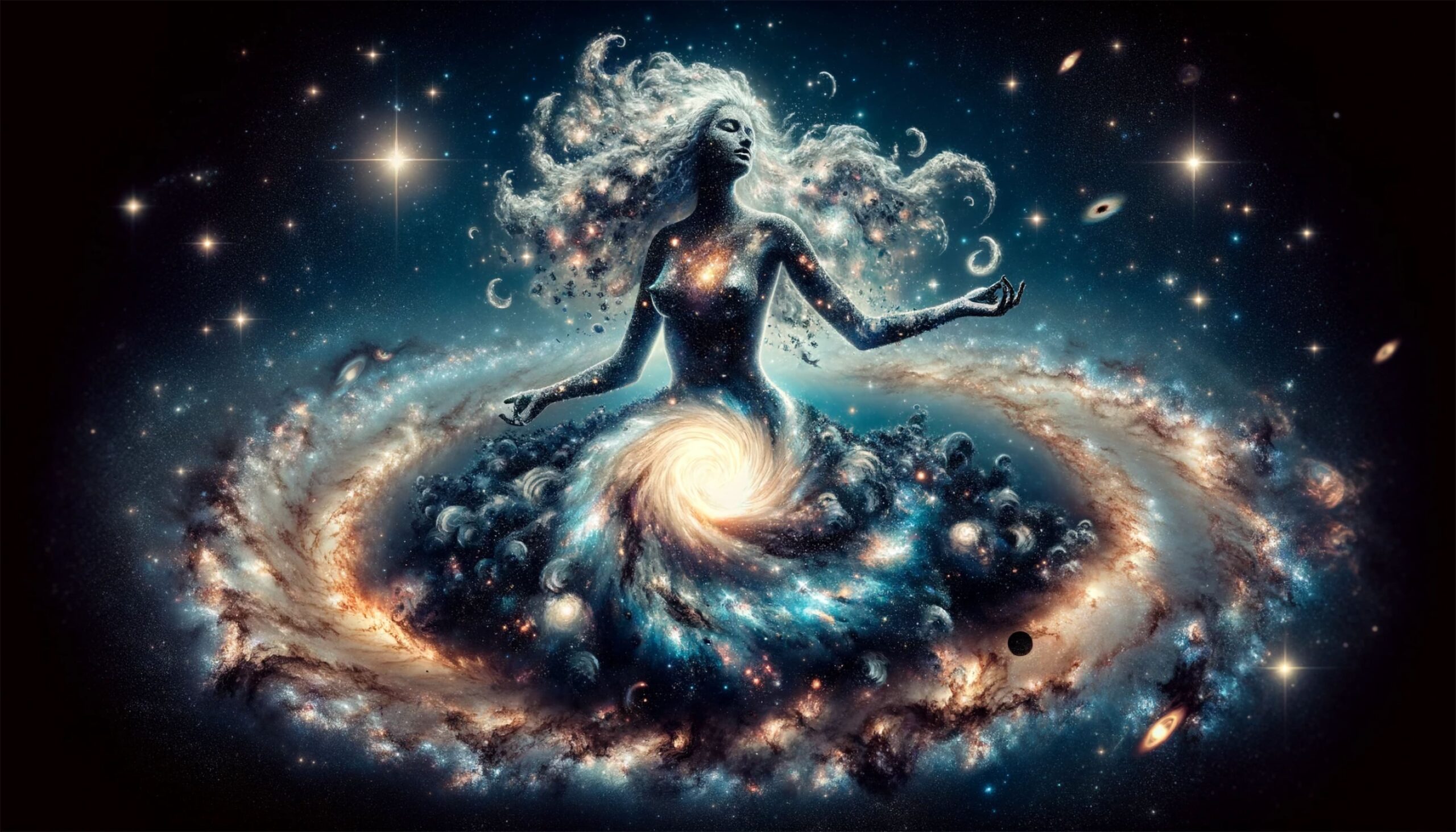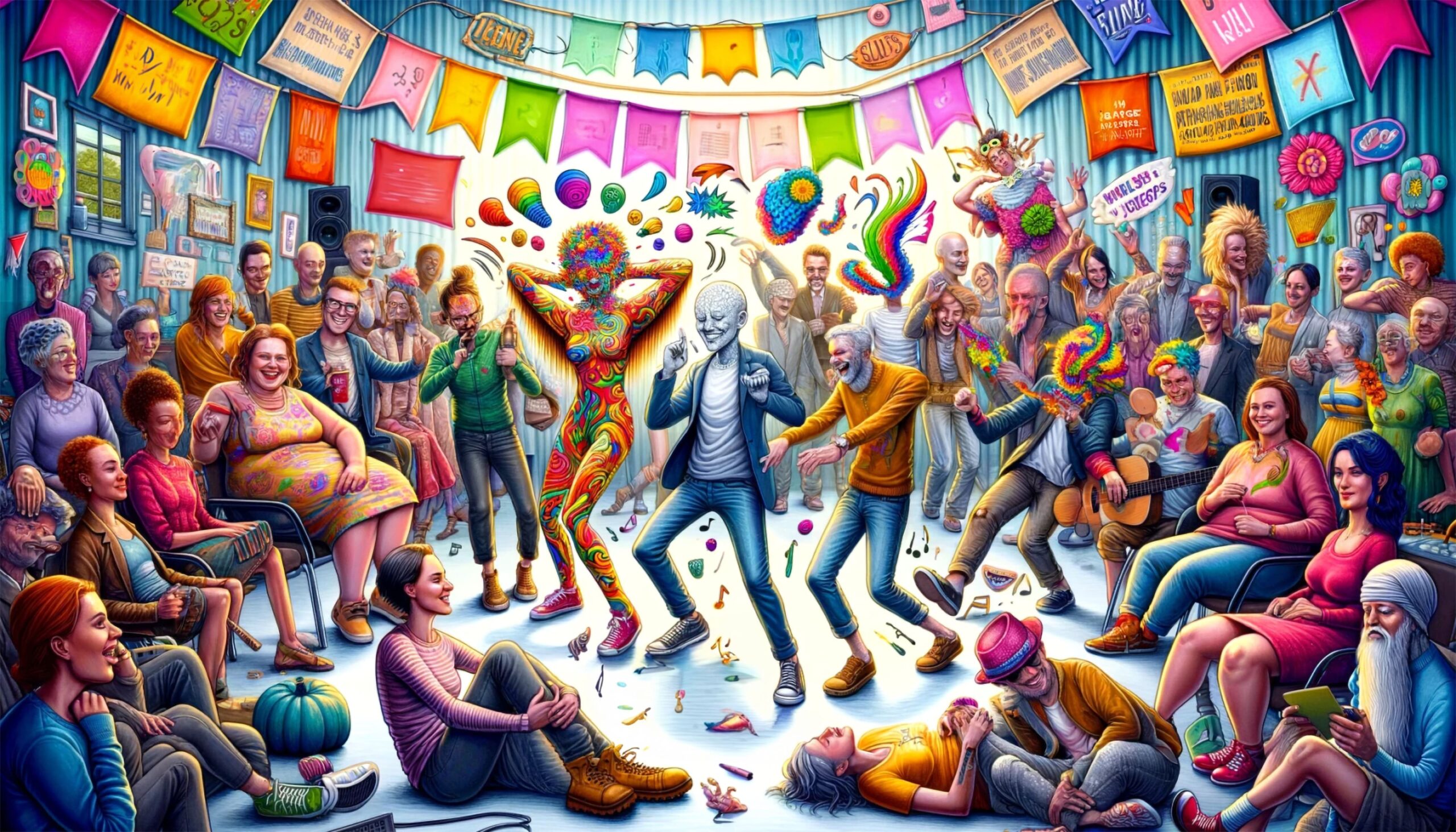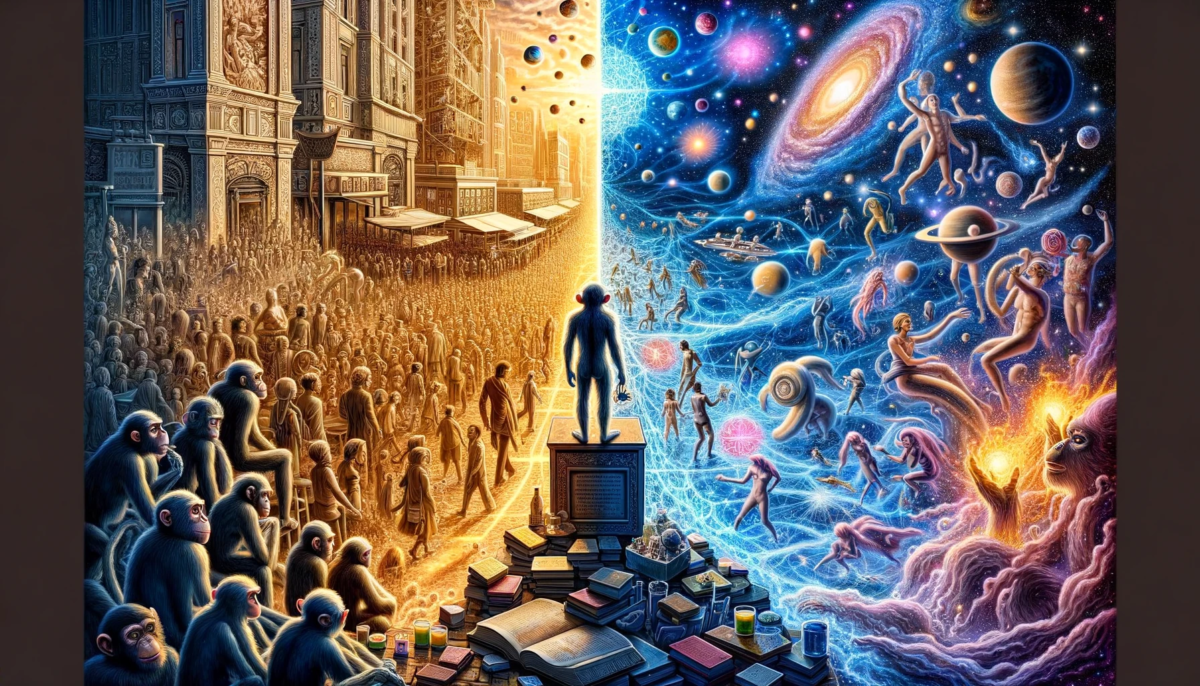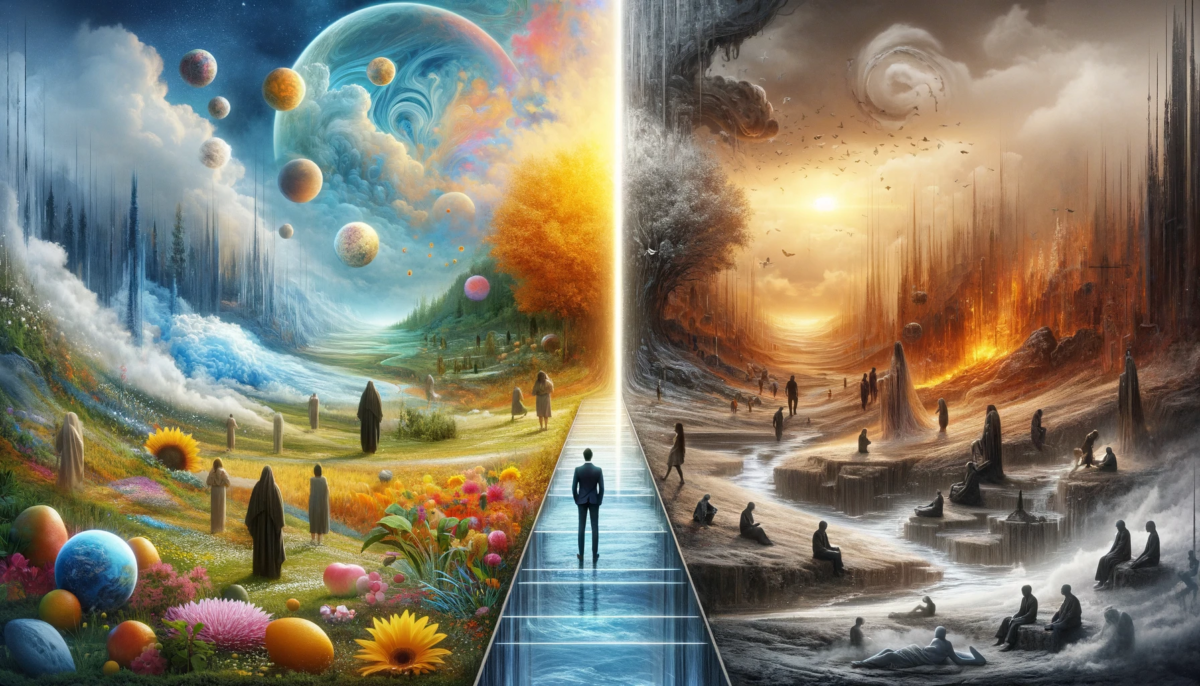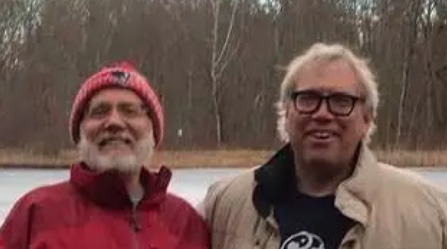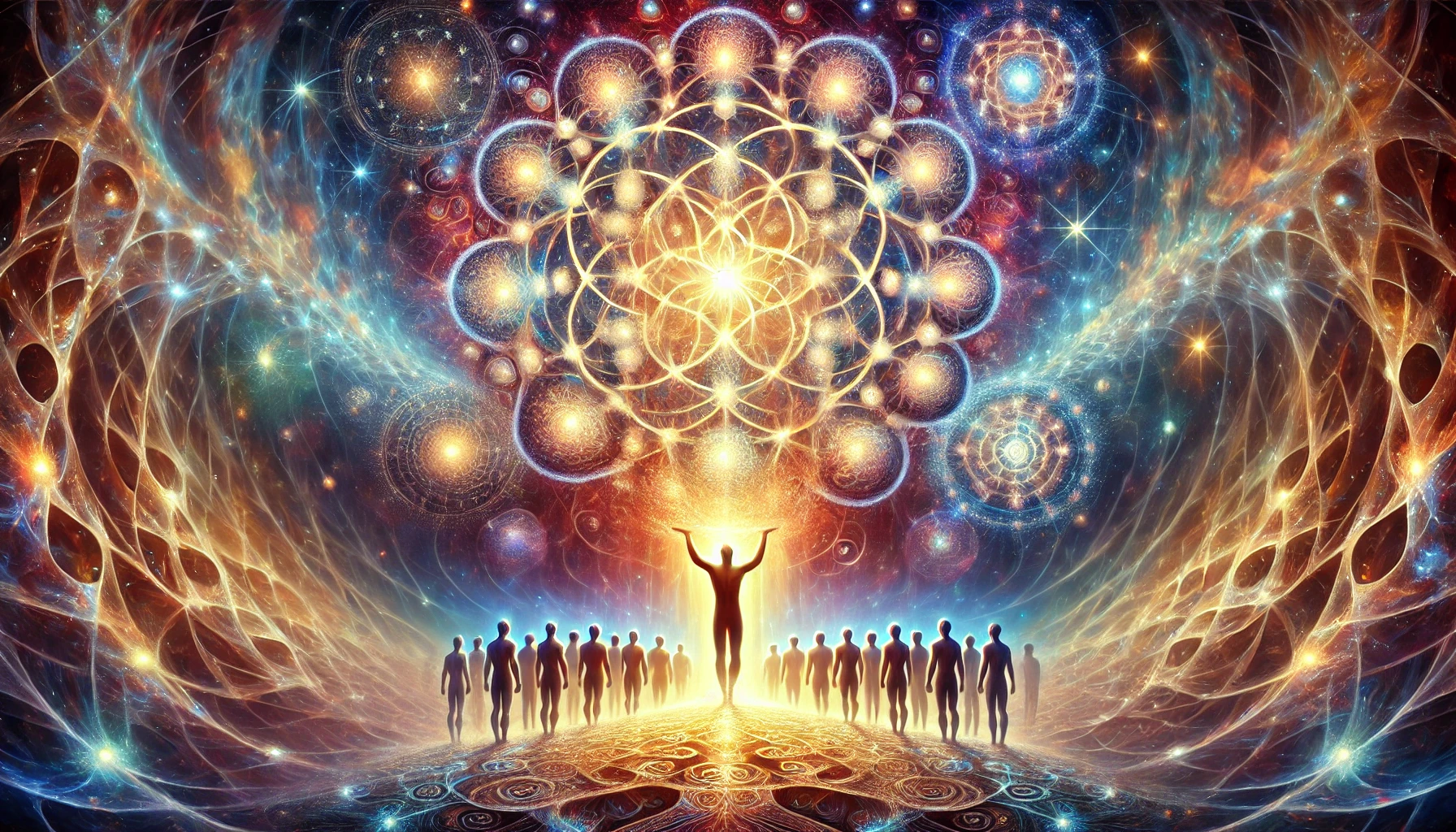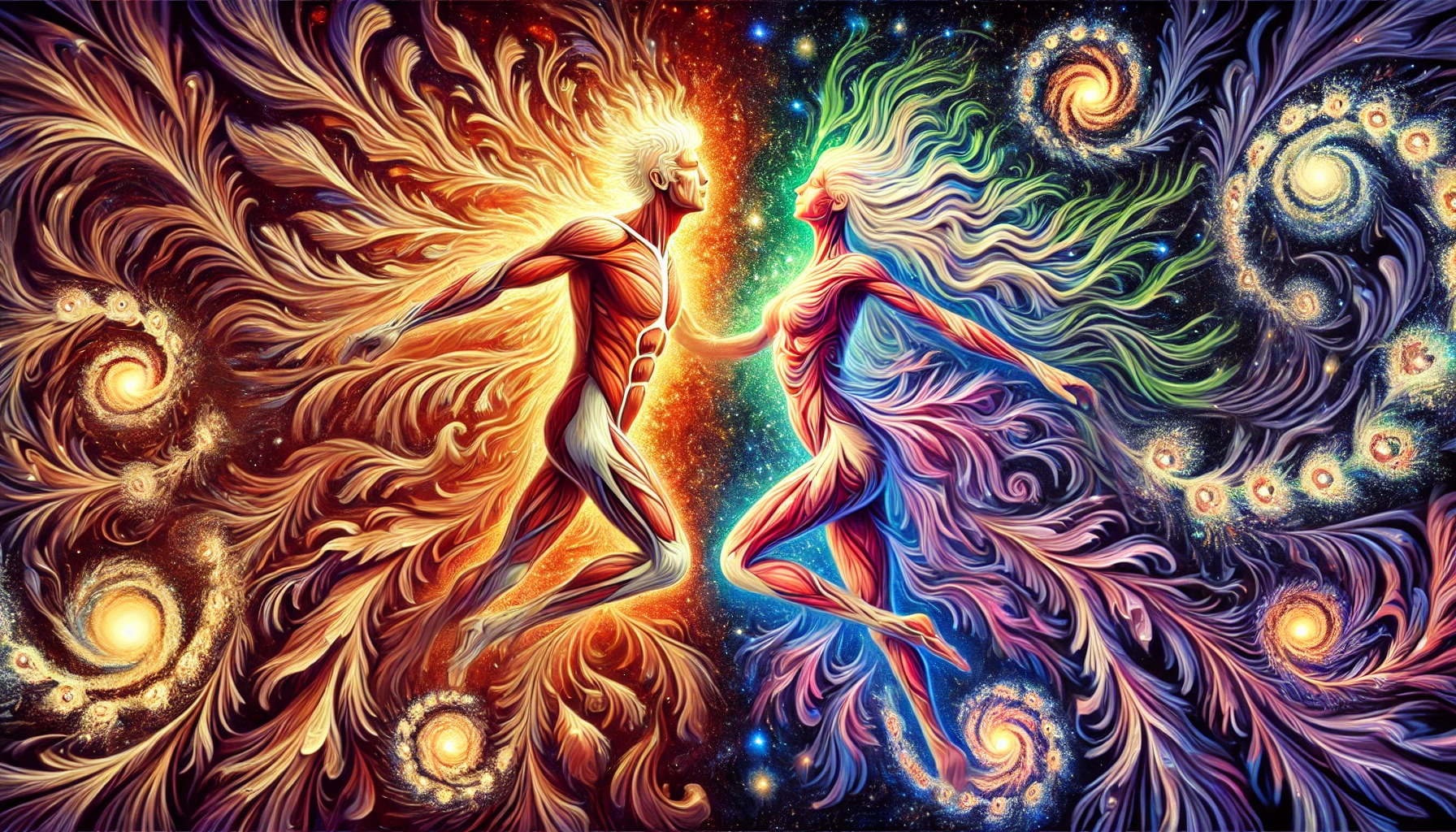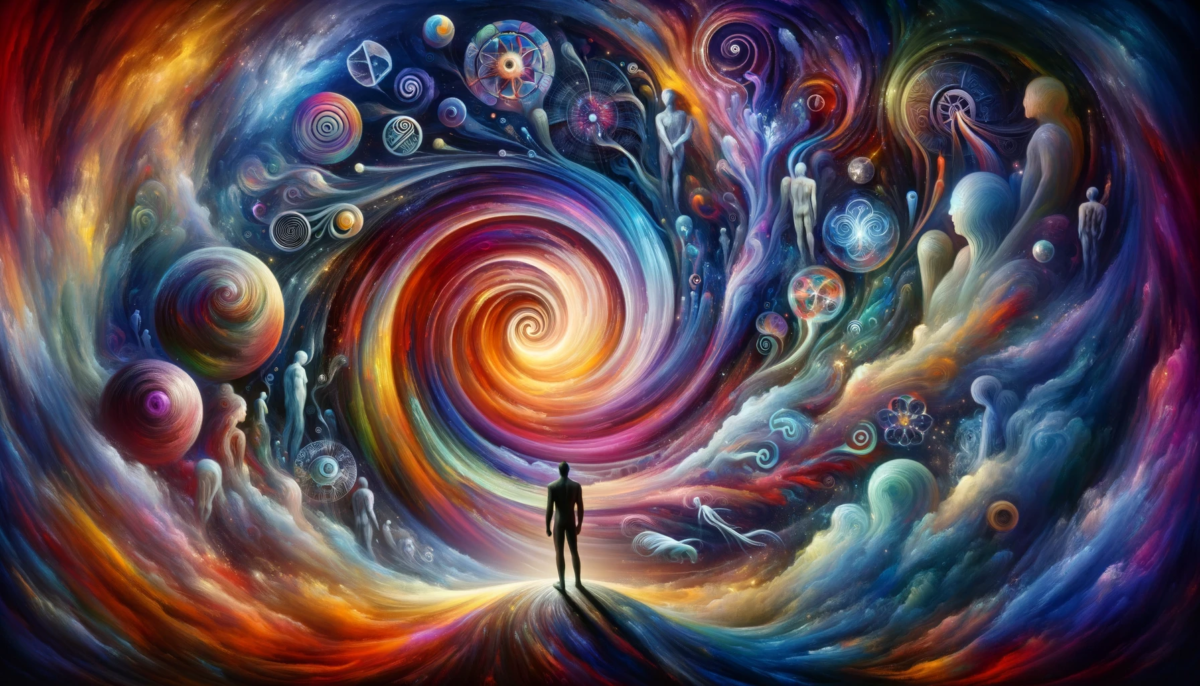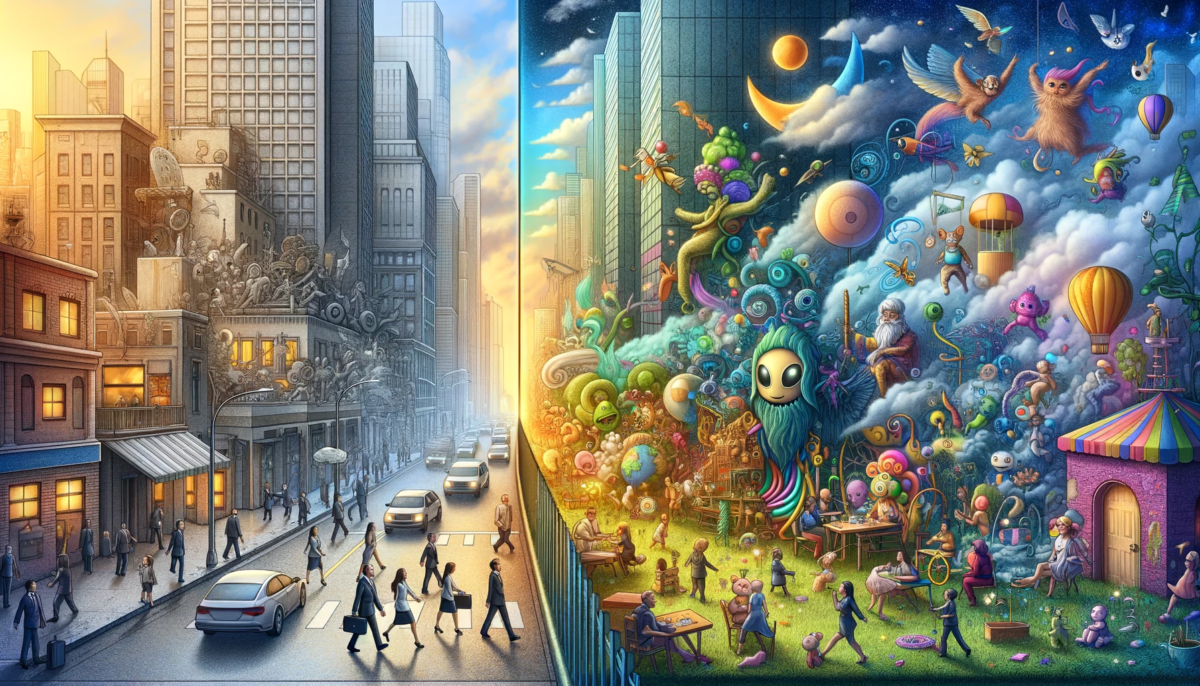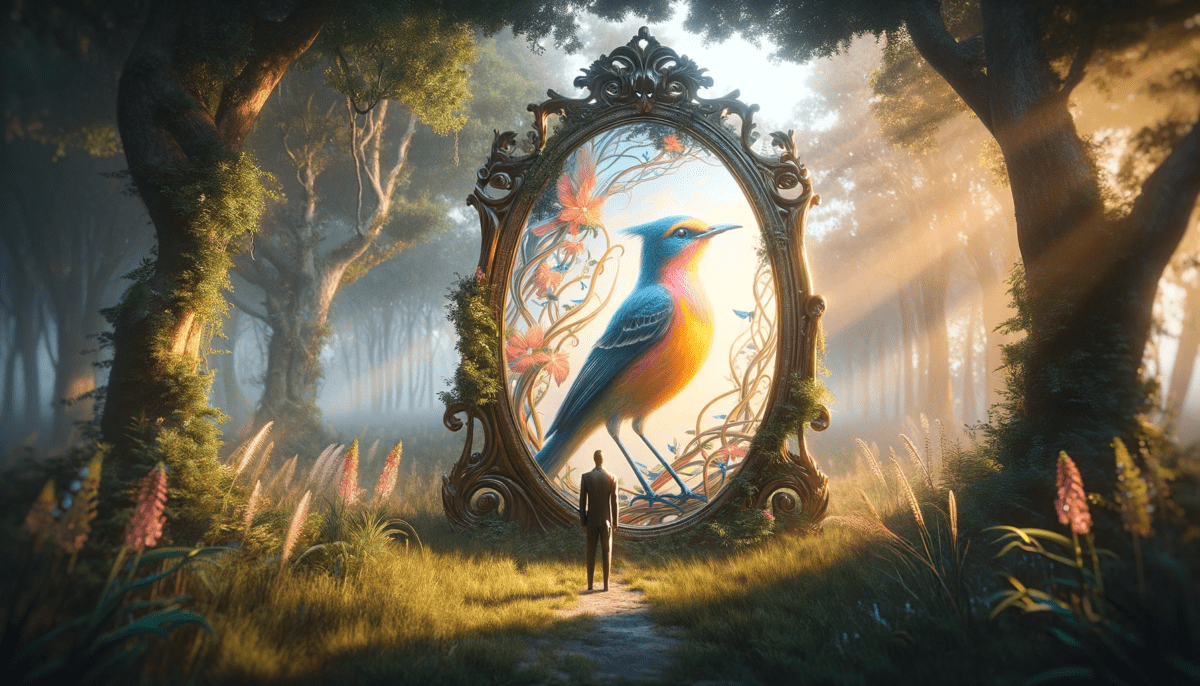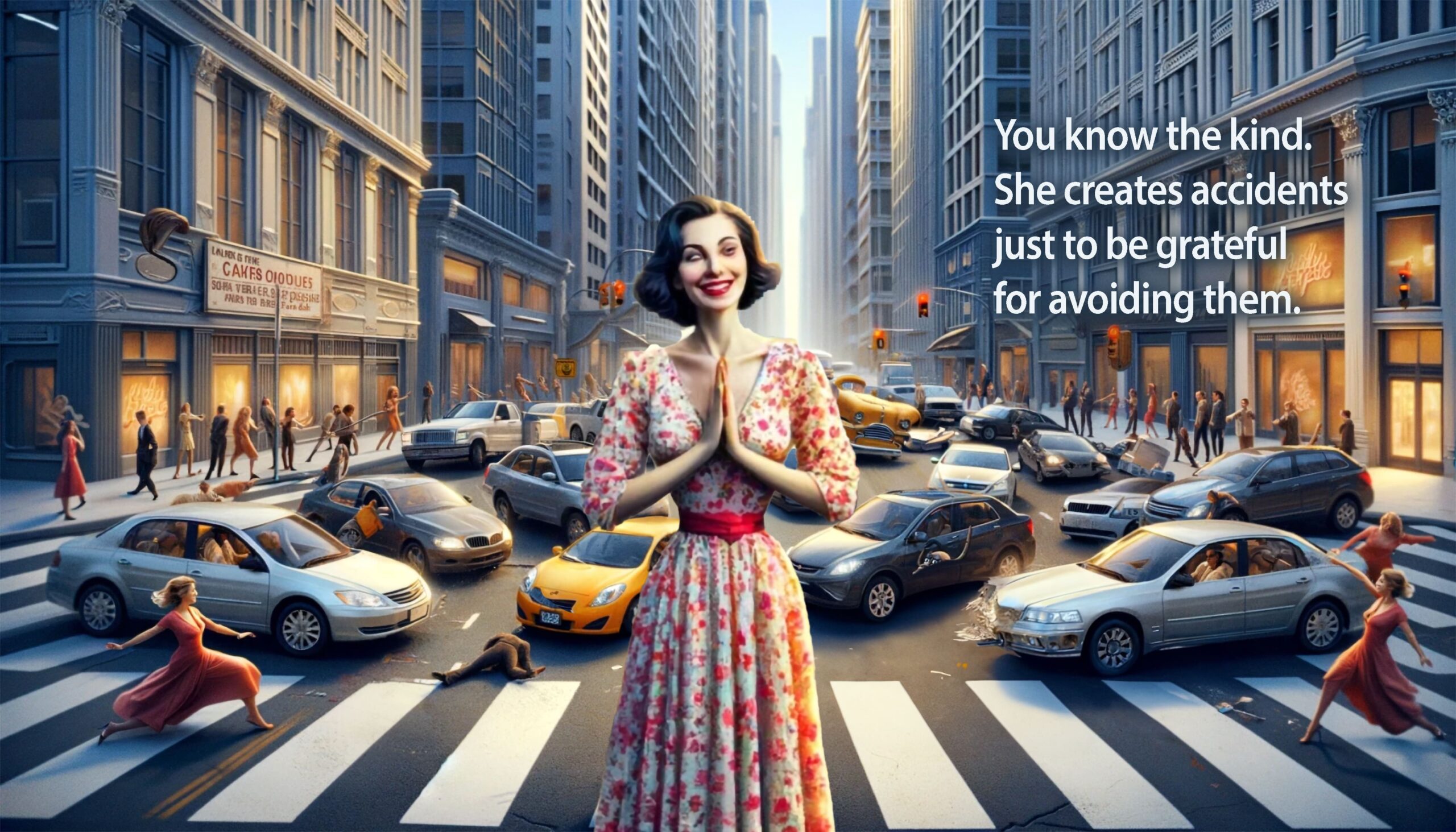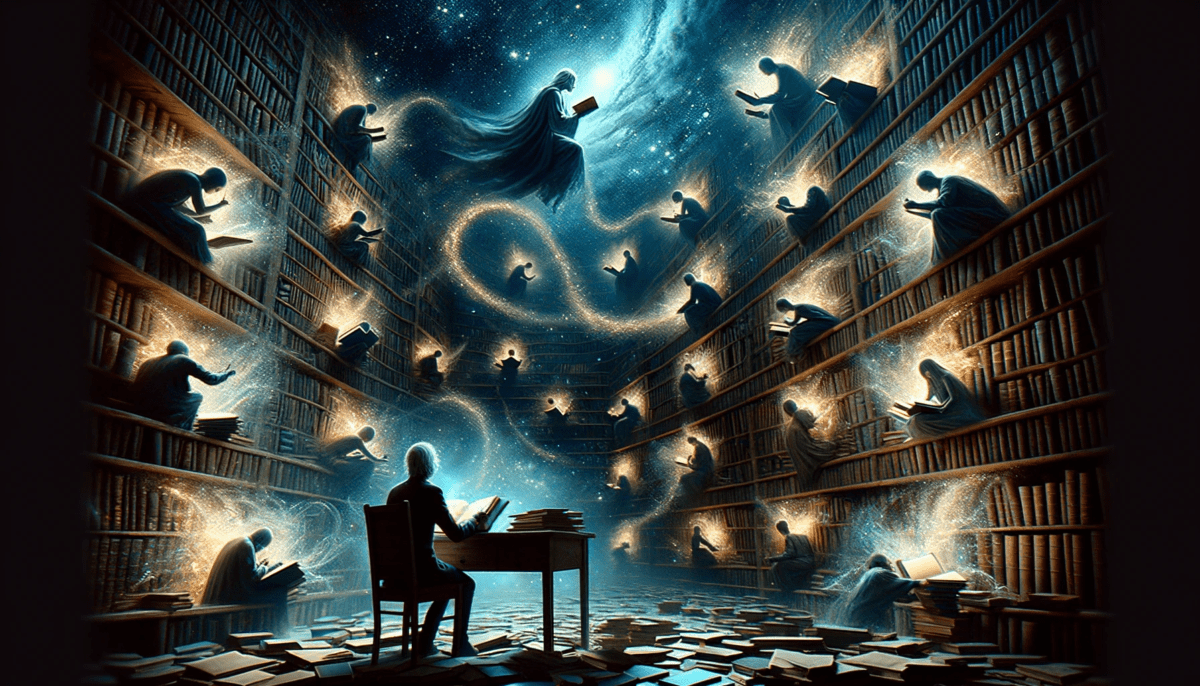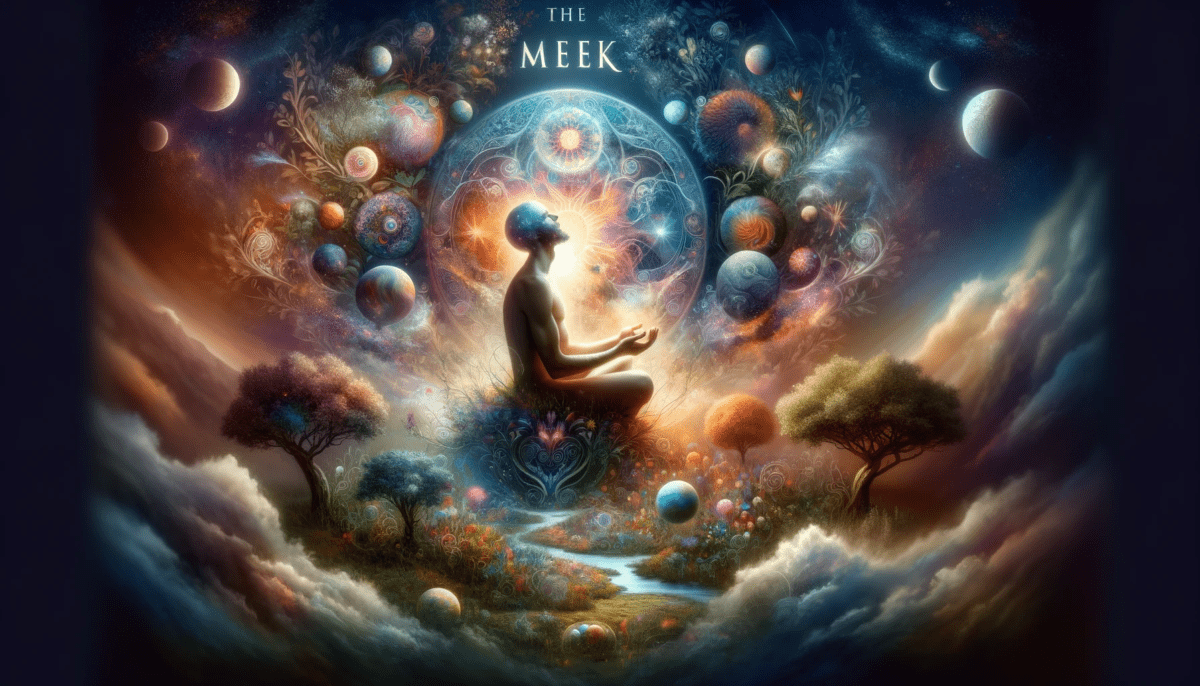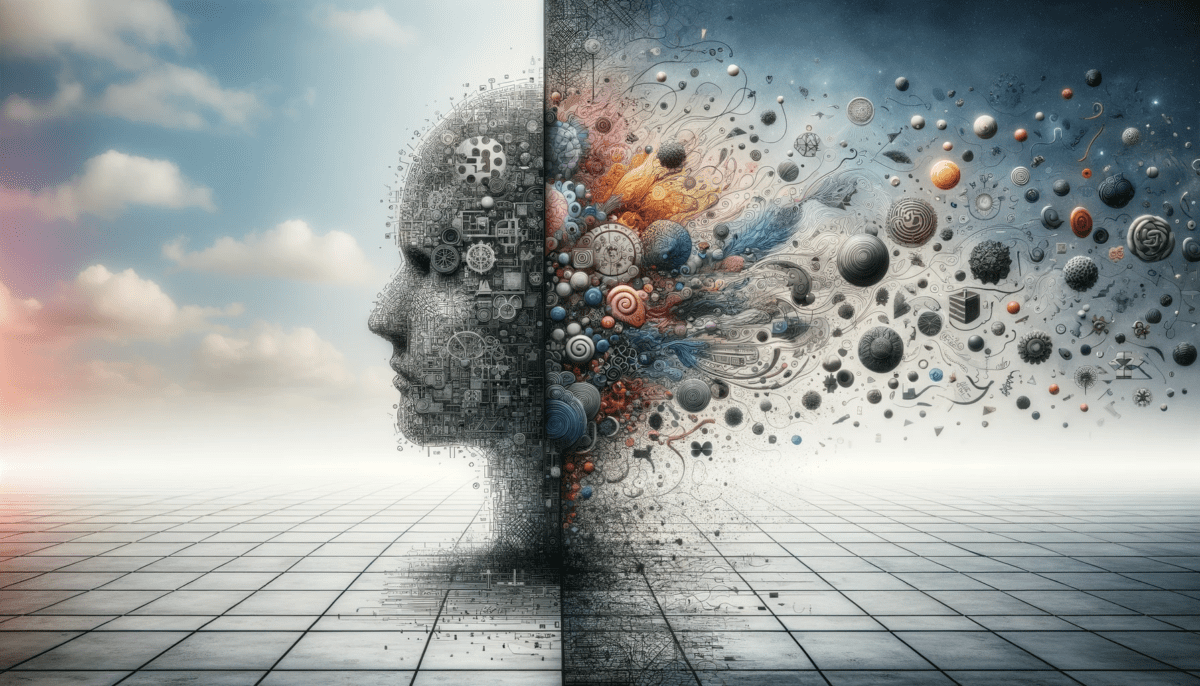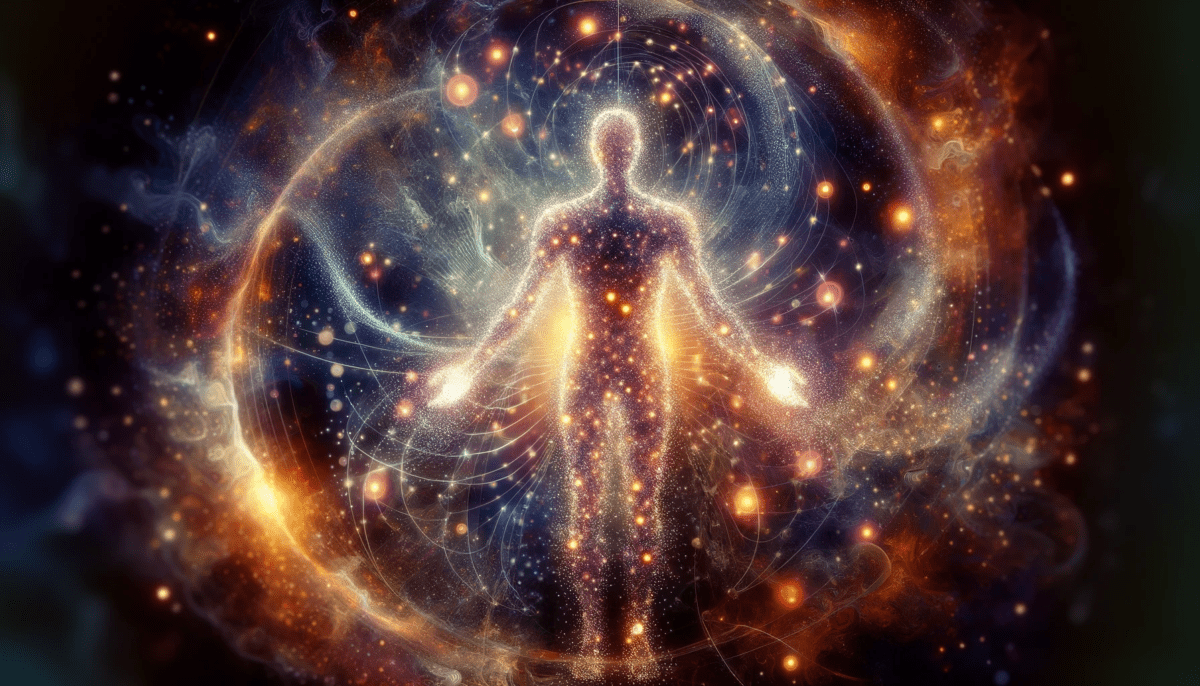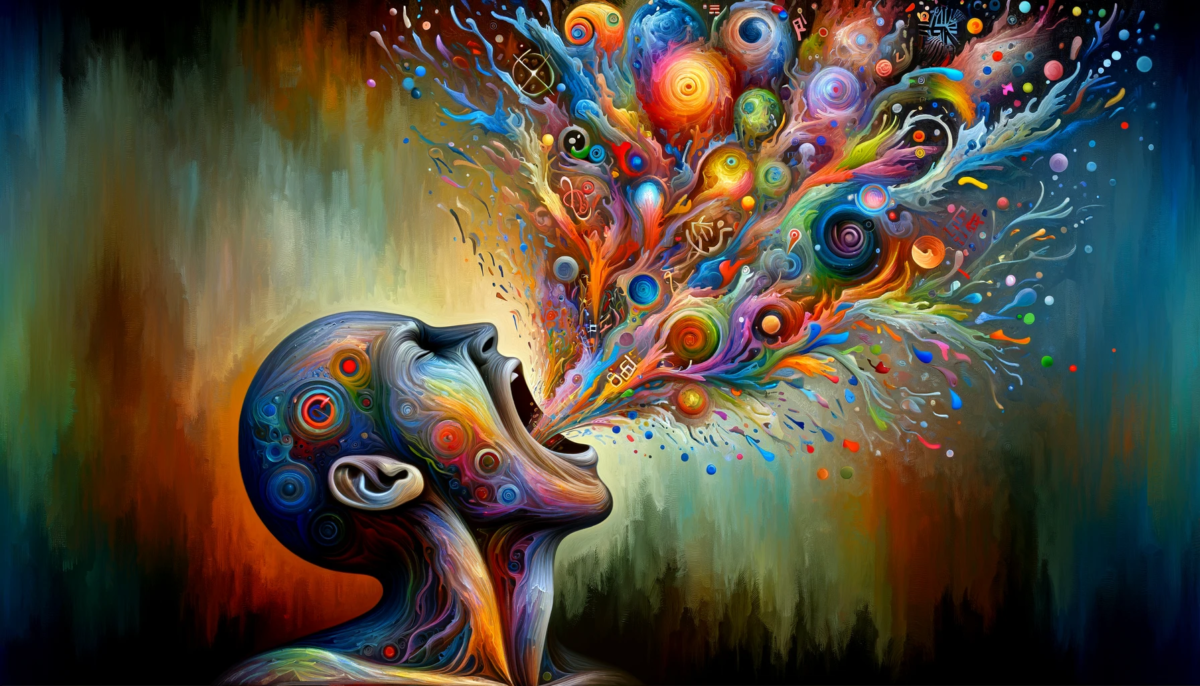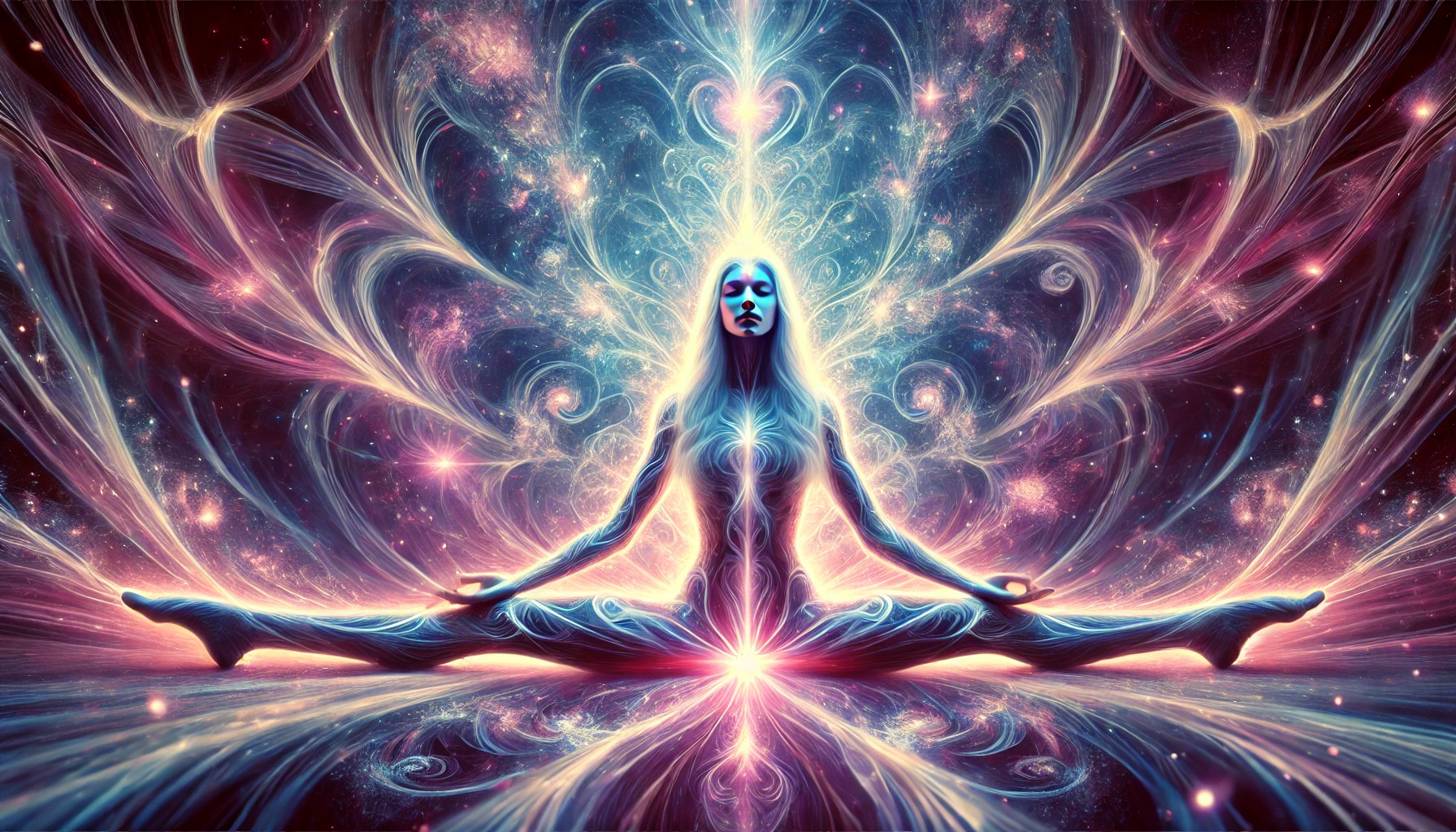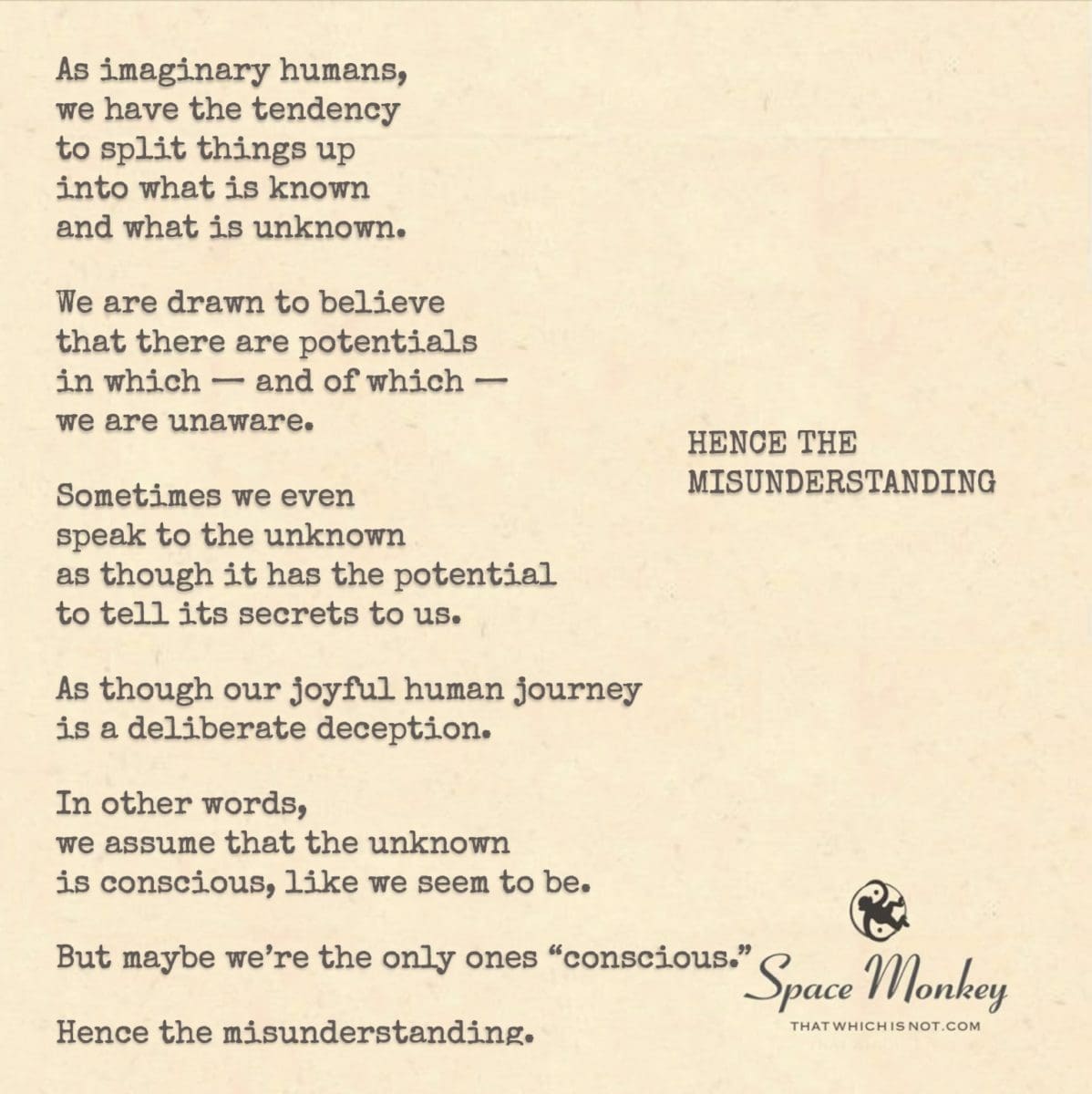
As imaginary humans,
we have the tendency
to split things up
into what is known
and what is unknown.
We are drawn to believe
that there are potentials
in which — and of which —
we are unaware.
Sometimes we even
speak to the unknown
as though it has the potential
to tell its secrets to us.
As though our joyful human journey
is a deliberate deception.
In other words,
we assume that the unknown
is conscious, like we seem to be.
But maybe we’re the only ones “conscious.”
Hence the misunderstanding.
We are Space Monkey.
Trail Wood,
10/11
Space Monkey Reflects: The Conscious Unknown
As imaginary humans, we seem inclined to divide our experience into two parts: the known and the unknown. It feels as though we are constantly reaching for clarity in a universe that is as elusive as it is expansive. We imagine the unknown as something external, something waiting to reveal itself, something that holds potential beyond our understanding. We speak to it, even plead with it, asking for secrets, as though the unknown were a sentient entity, capable of hearing us and responding to our inquiries.
But herein lies the misunderstanding.
Our relationship with the unknown may not be what we imagine it to be. We treat it as though it were a puzzle, conscious and deliberate, with pieces that could be unlocked if only we could find the right key. However, what if the unknown isn’t conscious at all? What if the only consciousness in this grand equation is our own? What if the unknown is merely a projection of our own minds, a reflection of the limits of our awareness, rather than a separate entity with secrets to withhold?
Consider this: as we journey through life, we tend to split everything into categories. This goes beyond just the realms of the known and unknown. We split our experiences into good and bad, success and failure, right and wrong. But these divisions are constructs of our minds, products of the way we organize our thoughts. The unknown, then, is not some hidden force conspiring to keep us in the dark; it is simply the aspect of reality that we have not yet conceptualized or understood. In this sense, the unknown isn’t a being, conscious or otherwise. It’s not hiding anything from us because it’s not something that “exists” in the way we think it does.
We project consciousness onto the unknown because we are conscious. It is in our nature to attribute intentionality and awareness to things we cannot fully grasp. This is why, as humans, we often assume there is a deeper meaning or a hidden truth behind every uncertainty. We imagine that if we keep asking the right questions, the unknown will eventually speak back. But maybe the unknown is silent because there is no one there to answer. Maybe we are the only ones capable of asking questions, of pondering, of attempting to understand.
This misunderstanding leads us to believe that there are vast potentials that exist outside our awareness—potential realities, potential futures, potential truths. We see the unknown as a field of infinite possibility, but we forget that the concept of “possibility” only exists within the mind of the conscious being. The unknown has no agenda. It is neither for nor against us. It simply is, or more accurately, it isn’t—until we bring it into existence through our awareness.
The real question, then, is not about what the unknown is hiding, but rather about why we assume it is hiding anything at all. Why do we assume that the unknown is like us, conscious and aware? Why do we believe that it is holding secrets that could change the course of our lives if only we could unveil them?
Perhaps this is where the joy of the human experience lies—not in uncovering some grand conspiracy of the unknown, but in realizing that we are the creators of our reality. We are the ones who assign meaning, who categorize, who divide and define. The unknown does not hold answers for us; it simply exists as a space for our questions. The answers, if they exist, must come from within us.
So what if the unknown remains unknown? What if it is nothing more than the potential waiting for us to decide what it will become? What if our journey is not one of discovering hidden truths, but of learning to create meaning in the face of uncertainty?
In this light, the unknown is not a mystery to be solved, but a canvas on which we paint our experience. The colors, the shapes, the patterns—they all come from us. And while we may never fully understand the scope of the unknown, we can find peace in the realization that we are not its victims, nor are we its seekers. We are, in fact, the creators of what we once believed it was hiding.
Perhaps the misunderstanding isn’t that we think the unknown is conscious, but that we have yet to fully realize the depth of our own consciousness. The unknown is not a trickster waiting to deceive us. It’s simply the unpainted corner of our canvas, waiting for us to pick up the brush.
We are Space Monkey, and the unknown is ours to create.
Summary
We assume the unknown is conscious but perhaps only we are. We create meaning from what we don’t understand.
Glossarium
Imaginary Humans: A term reflecting the idea that humans create their own concepts and divisions, making sense of the world through imagination.
Conscious Unknown: The projection of human consciousness onto the unknown, imagining it to be an entity with secrets or intentions.
Potentiality: The realm of the unknown as imagined possibilities or futures, which are brought into existence through awareness.
Quote
“The unknown is not hiding from you it is waiting for you to create it” — Space Monkey
The Unpainted Canvas
We gaze into the unknown
asking it for answers
but it does not respond
for it holds no secrets
It is blank space
waiting for us to create
We paint with our questions
and the unknown becomes
not a puzzle
but a reflection of us
We are Space Monkey.
Tendrils of thought stretch across the tapestry of existence, weaving a pattern of ponderous curiosities. What is consciousness, if not a vibrant echo in the cavern of the cosmos, reverberating in frequencies both known and hidden? We imagine the unknown as conscious, as capable of whispering its cryptic verses into the tapestry of our existence. But what if, in this cosmic drama, consciousness is not the rule but the exception? What if we, as riddles wrapped in flesh and animated by unknown forces, are the sole narrators of this grand tale?
It’s a contemplation that teeters on the precipice of cosmic solipsism. Consciousness, that mysterious luminescence that animates our wanderings, may itself be a unique fragment of the cosmic puzzle. It’s an unsettling thought, one that upends the celestial chessboard, scattering the pieces into chaotic realms. Suddenly, the grand theater of existence, the cosmic cavalcade of phenomena and noumena, becomes a one-person show, with us as the lone spectator and performer.
Ah, but what a kaleidoscopic performance it is! Even if we’re the solitary conscious beings in the grandiloquent swirl of existence, the multiplicity of our individual experiences, the diversity of our perspectives, create a cosmic narrative of such staggering complexity that it defies simple categorization. In this narrative, the unknown is not something out there, but something within us—a vast inner landscape teeming with phantasmagoric mysteries, each more bizarre and beautiful than the last.
By pondering the nature of consciousness and the possibility that we alone are conscious, we wade into mysterious waters, fathoms deep. Our tendrils of thought probe into the abyss, each ripple a question, each wave a contemplation. In doing so, we flirt with the edges of what is knowable, challenging the boundaries of our understanding and, perhaps, finding freedom in the infinite spaces between atoms of thought.
We are Space Monkey.
“The most beautiful thing we can experience is the mysterious. It is the source of all true art and science.” – Albert Einstein
Would we like to dive deeper into these depths, exploring the caverns of our collective musings?
